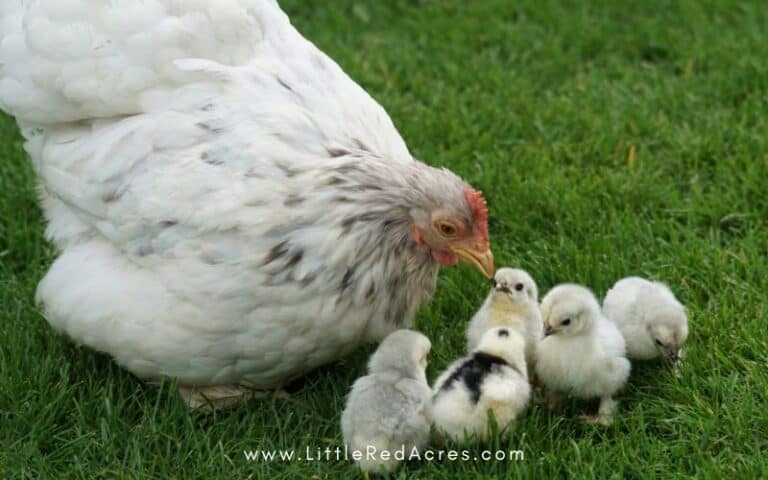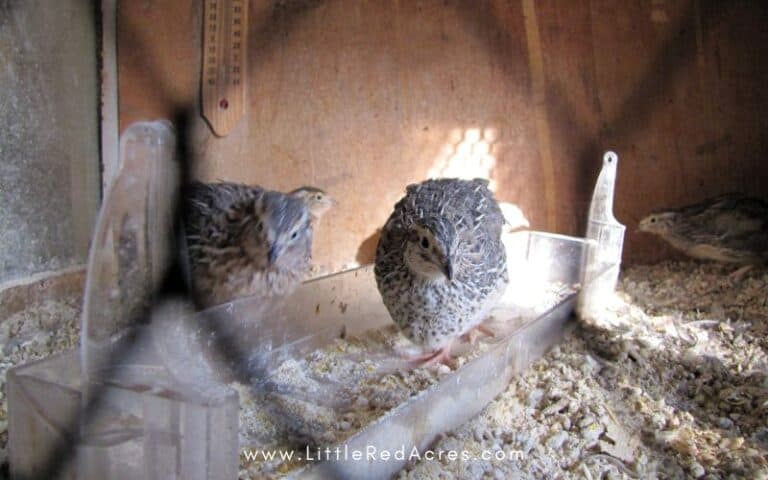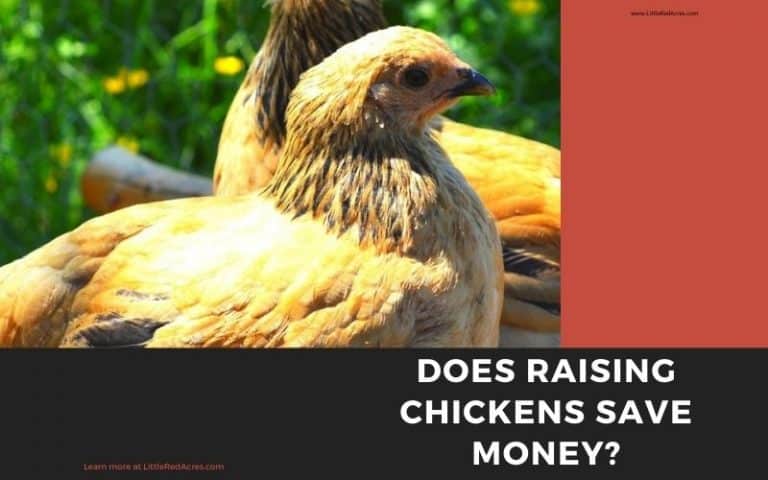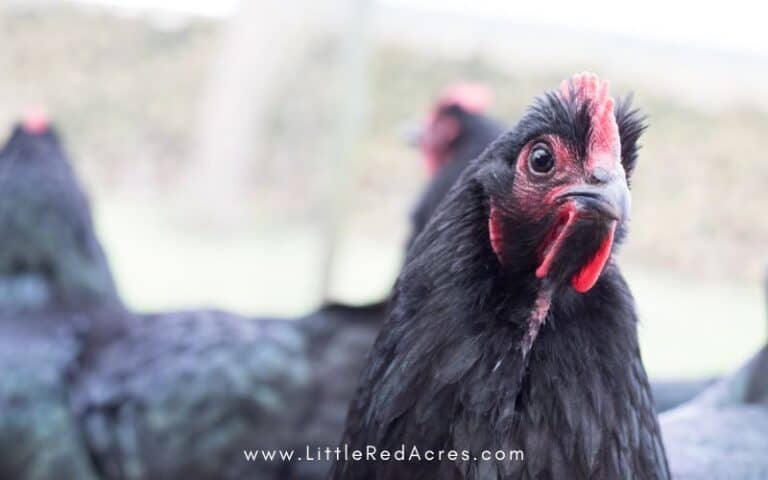Treating Wry Neck in Chickens
Inside: Knowing how to treat wry neck, or “crook neck”, as well as ways to prevent it in the future is really important for your flock.
Wry neck is a condition that is often referred to as “crook neck” and it typically affects ducklings and baby chicks, although adult birds can suffer from it if they are being fed an incorrect diet. Knowing how to treat it, as well as ways to prevent it in the future is really important for your flock.
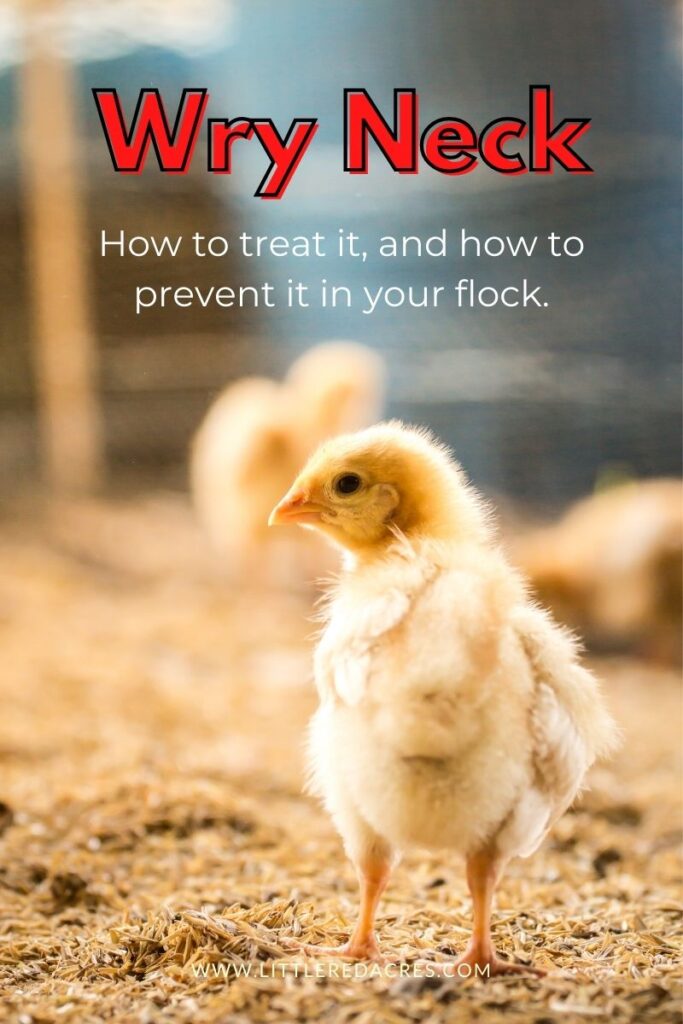
This post may contain affiliate links, see my disclosure policy for more information.
Treating Wry Neck in Chickens
Birds with wry neck cannot hold their heads up on their own and as it progressively gets worse, affected birds start to fall over or lie on their backs unable to walk freely on their own. They can die if they are not treated and that's not what anyone wants.
These birds will have no control over their head/neck so they easily crash and bang into things causing more injury to themselves.
Get updates & freebies delivered to your inbox!
Often fatal simply because chicks, ducklings, or affected adult birds simply cannot eat or drink any water which means they get dehydrated and if not helped to feed, birds suffering from the condition will starve to death.
Sadly, you may also consider culling birds that are showing no significant signs of recovery after a period of time.
Certain breeds are more prone to developing the condition through injuries they get to their heads. This includes both Polish and Silkies because their skulls don't offer the same amount of protection as found in other breeds and due to their head plumage, they are more likely to be pecked on their heads by other birds that live in the same environment.
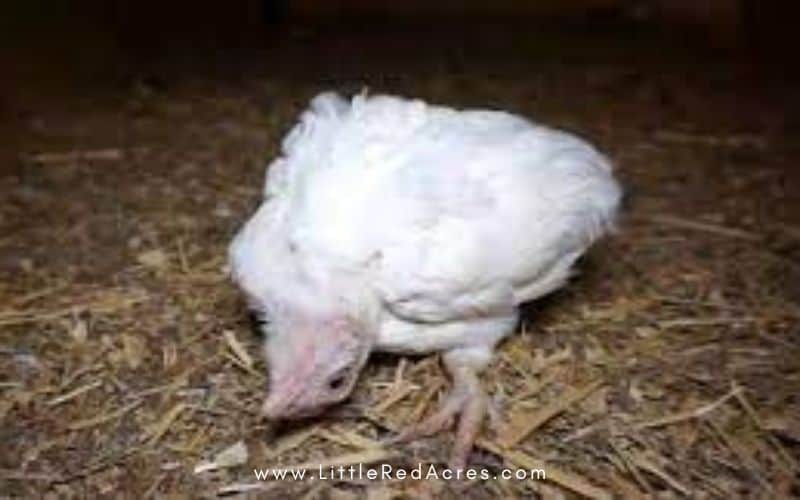
Vitamin Deficiency
If birds are fed an incorrect diet in particular one that is vitamin deficient especially if it does not contain enough Vitamin E, chickens can develop wry neck.
No matter what the cause might be, it is very worthwhile upping the amount of Vitamin E your birds are receiving in their diet.
You shouldn't expect immediate results because any treatment will take a few weeks to take effect which is why it's important to start supplementing their feed as soon as possible. A correct diet should be a good quality flock raiser/layer pellet that has all the nutritional requirements your flock needs.
To build up your flock's Vitamin B1 intake, it's good idea to add sunflower seeds, wheat germ, or bran to their diets as all of these are very good, natural sources of the vitamin.
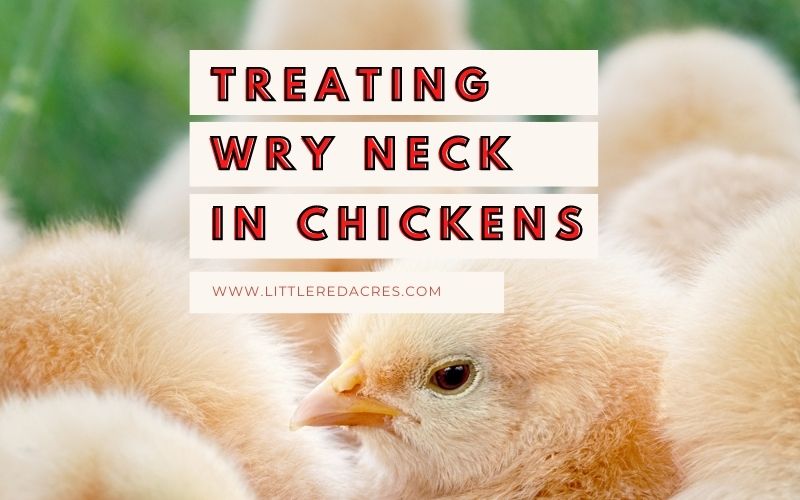
Treatments for Wry Neck in Chickens
No matter what has caused the condition, it's important to separate any bird with wry neck from the rest of the flock to avoid them being picked on or trampled.
You need to feed them and make sure they are drinking enough water.
One way of doing this is to soak some bread in fresh clean water (not recommended for ducklings/ducks)before feeding it to the bird – like this you avoid them aspirating the liquid into their lungs which could prove fatal.
If you are looking to start raising chickens but are not sure where to start? This ebook has everything you need to know about chicken raising. You learn about housing and coop requirements, what to feed your chickens, and how to keep them healthy. This ebook is your one-stop guide to successfully raising chickens!
What you need to treat wry neck yourself:
Non-iron Polyvisol for children is also recommended to boost the chick or duckling during this stressful time, one drop twice per day. Once your bird is separated keep it quiet to keep the stress levels down.
You will need to be there regularly for your bird in order to feed and water him or her.
A shallow thin-lipped waterer such as what you would use with quail chicks works great for making sure they have access to water but aren't going to risk them falling into it and drowning.
Wrapping your bird in a towel so it cannot flap may be the easiest way of holding it and getting it to eat while you hold feed and water in front of it.
Wry neck is not an easy, straightforward, or quick ailment to fix.
You have to be prepared for the long haul with any bird suffering from this.
Frequently Asked Questions
How do you fix wry neck in chickens? Check your hen's ears and mouth for evidence of a fungal problem or infection. Supplementing Vitamin E and a course of antibiotics should help to correct the condition although often it corrects spontaneously, and some hens are normal most of the time with an occasional twist.
Is wry neck painful for chickens? It is stressful and will cause them to starve. It is unsure if they are in pain initially.

Want More?
How to Get Started with Chickens
Keeping a Medical Kit for Chickens
5 Reasons Why You Don’t Want a Rooster


